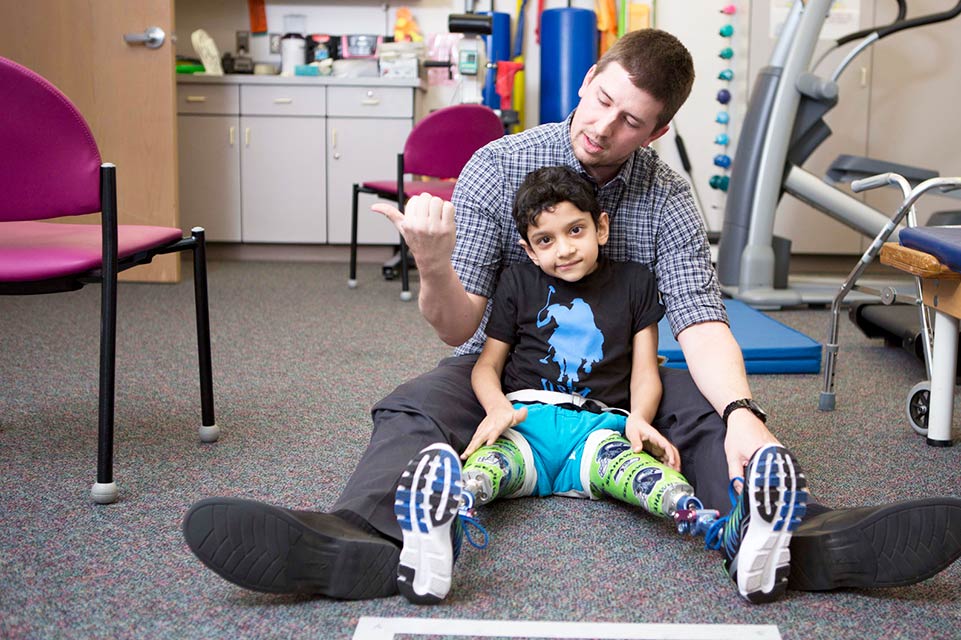Metabolic Bone Disease
Metabolic bone disease is an umbrella term for disorders that are caused by an abnormal bone cell function.
There are two primary types of bone cells – those that build bone and those that remove bone. When the function of these cells is disrupted, it can cause a variety of different metabolic (related to metabolism) bone disorders.
Shriners Children’s provides a variety of services to children with bone disorders caused by nutritional, chemical or glandular problems that are metabolic in nature. These disorders are often genetically transmitted and passed down from generation to generation.
Specific treatments and services may vary by location. Please contact a specific location for more information.
Types of Metabolic Bone Diseases
Shriners Children’s provides treatment for more than 100 bone diseases ranging from common to rare. Below are the most commonly treated conditions:
- Rickets: When bone-forming cells cannot put enough calcium or phosphate into the bones, the bones will become soft, leading to a disease called rickets.
- Osteoporosis: When not enough bone is produced or too much bone material is removed, osteoporosis occurs.
- Osteogenesis Imperfecta or brittle bone disease: In this disorder, the bone forming cells have a genetic abnormality and produce low-quality bone that is too brittle and fractures easily.
- Other conditions include:
- Fibrous Dysplasia
- Multiple Fractures
- Skeletal Dysplasia
- Vitamin D disorders
Treatment for Metabolic Bone Diseases
Our interdisciplinary team works to diagnose, treat and investigate the causes of rare bone disorders and provide medical therapy when available. This team may consist of pediatric geneticists, endocrinologists, rheumatologists, pediatric orthopedic surgeons, physical and occupational therapists, nutritionists and more. Our comprehensive care for children and teenagers with metabolic bone diseases results in the best possible outcomes.
Treatment may include:
- Bone-strengthening treatments
- Physical and occupational therapy
- Collaboration with nutritional services to design meal plans fulfilling the child’s need for calcium and phosphorous
- Promoting growth through the use of hormones
- Help patients adapt to activities of daily living, including school
- Encouraging patients to stay active by getting them the equipment that they need
- Surgery: For children who need surgery, our orthopedic surgeons and anesthesiologists are specialized in pediatrics and provide the most comprehensive care.
Their level of expertise and motivation will have us singing the praises of Shriners Children's for years to come.

Occupational Therapy
Innovative Treatments
View All Related Treatments
Occupational Therapy

Nutritional Services

Pediatric Surgery


